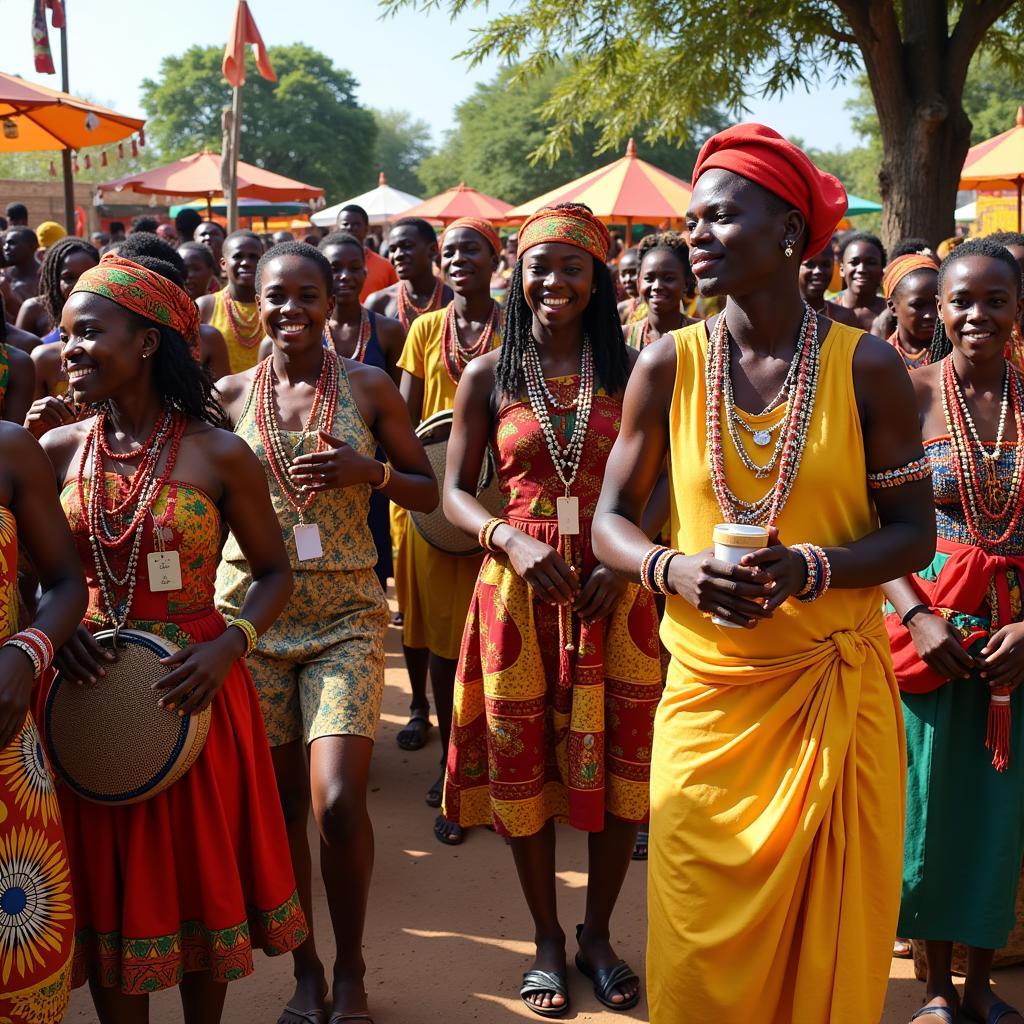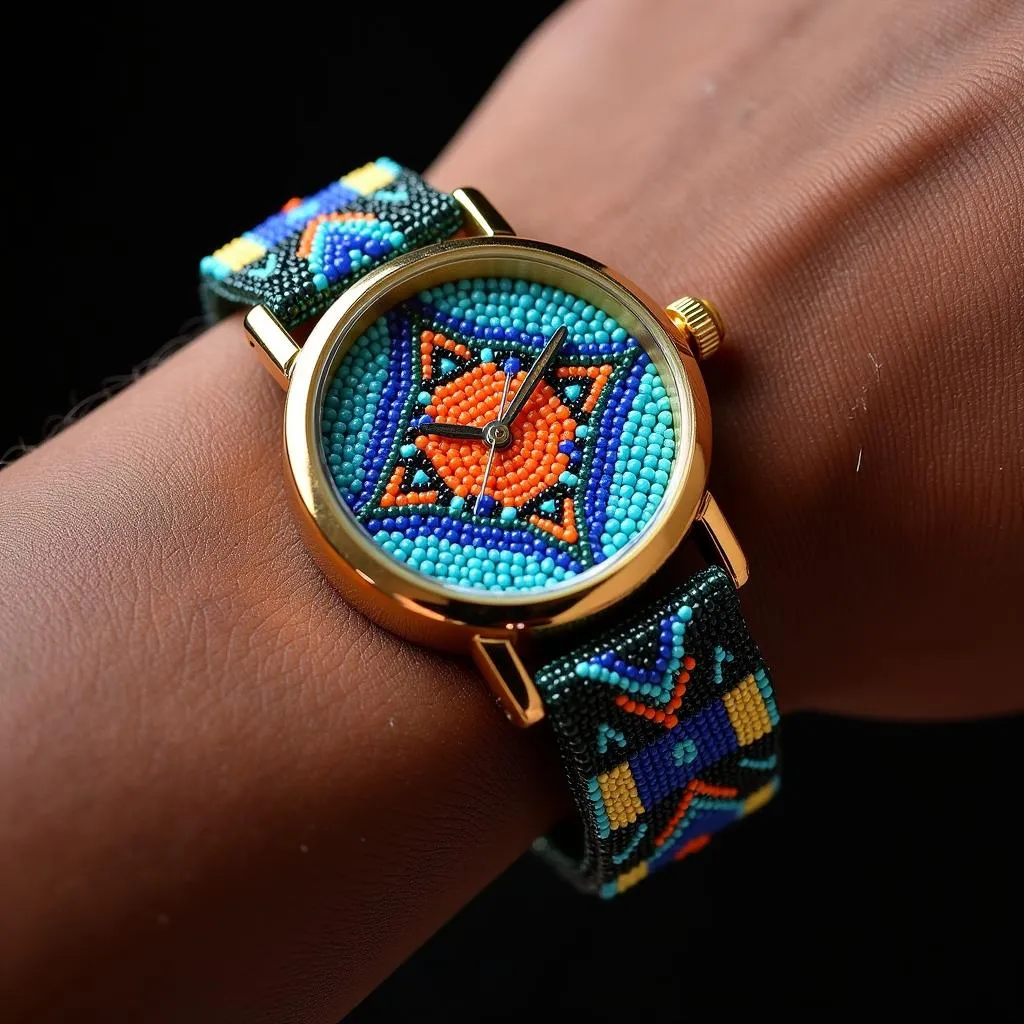African Goat Breeds: A Diverse and Hardy Herd
Africa, a continent renowned for its diverse ecosystems and rich cultural tapestry, is also home to a wide array of goat breeds. From the arid savannas to the fertile highlands, African Goat Breeds have adapted to thrive in diverse environments, making them a vital asset to communities across the continent. These goats are not only a source of nourishment, providing meat and milk, but also play a significant role in cultural traditions and economic livelihoods.
Unveiling the Uniqueness of African Goat Breeds
African goat breeds are celebrated for their hardiness, adaptability, and resistance to diseases. Over centuries, they have evolved to withstand harsh climatic conditions, limited water sources, and exposure to various parasites. This inherent resilience makes them an excellent choice for farmers, especially in regions facing agricultural challenges. Moreover, African goats are known for their remarkable browsing ability, efficiently foraging on a wide range of vegetation, including shrubs, bushes, and trees.
Exploring Popular African Goat Breeds
While countless goat breeds exist across Africa, some have gained recognition for their unique characteristics and economic significance. Let’s delve into some of the prominent ones:
The Boer Goat: A Meat Production Powerhouse
Originating from South Africa, the Boer goat is a highly sought-after breed for meat production. Renowned for its rapid growth rate, impressive body size, and excellent meat quality, the Boer goat has captured the attention of farmers worldwide. Its adaptability to various climates further enhances its appeal, making it a valuable asset in both intensive and extensive farming systems.
The Saanen Goat: A Milk Production Champion
Hailing from the Saanen valley in Switzerland, this breed has made a significant impact on milk production in Africa. The Saanen goat is celebrated for its exceptional milk yield, producing large quantities of high-quality milk. This milk is not only a source of nutrition but also serves as a key ingredient in various dairy products, contributing to economic growth and food security.
The Anglo-Nubian Goat: A Blend of Resilience and Productivity
A result of crossbreeding between British and Indian goat breeds, the Anglo-Nubian goat boasts a distinctive appearance with its long, pendulous ears and Roman nose. This breed is admired for its adaptability to hot climates and its ability to produce both milk and meat efficiently. Its resilience to diseases further strengthens its position as a valuable asset for farmers, particularly in challenging environments.
The Significance of African Goat Breeds in India
The influence of African goat breeds extends far beyond the African continent, reaching as far as India. In recent years, there has been a surge in the popularity of African goat breeds in India. This trend is primarily driven by the growing demand for goat meat and the exceptional characteristics of these breeds. The African Boer goat market in India has witnessed significant growth, with farmers recognizing the economic potential of these meat-producing powerhouses.
Information about African Boer goat information in Marathi has become increasingly accessible, aiding in the adoption of these breeds. The western state of Maharashtra has emerged as a hub for African Boer goat market in Maharashtra, with farmers embracing the breed’s potential to enhance their livelihoods. The eastern region of Bengal has also witnessed a rise in African goat farming in Bengal, further demonstrating the adaptability of these breeds to diverse environments.
“The introduction of African goat breeds has revolutionized goat farming practices in India,” shares Dr. Priya Sharma, a renowned veterinarian specializing in goat husbandry. “Their hardiness, disease resistance, and exceptional production capabilities have significantly improved the economic prospects for countless farmers.”
Preserving the Legacy of African Goat Breeds
While African goat breeds offer immense potential, it’s crucial to acknowledge the importance of preserving their genetic diversity. Climate change, habitat loss, and indiscriminate breeding practices pose threats to the long-term survival of these valuable animals.
Efforts are underway to promote sustainable breeding programs, conserve indigenous breeds, and raise awareness about the importance of genetic diversity. By supporting these initiatives and making informed choices as consumers, we can contribute to safeguarding the legacy of African goat breeds for generations to come.
Conclusion
From the rugged landscapes of Africa to the vibrant farms of India, African goat breeds continue to play a pivotal role in shaping livelihoods, traditions, and culinary experiences. Their resilience, adaptability, and economic significance make them a true testament to the continent’s rich biodiversity. By understanding and appreciating the unique characteristics of these animals, we can contribute to their preservation and ensure their continued contribution to global food security and cultural heritage.



